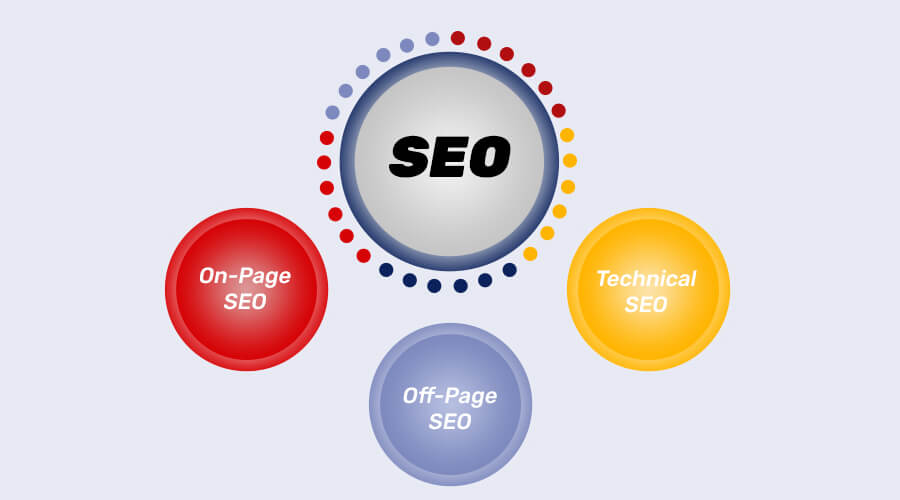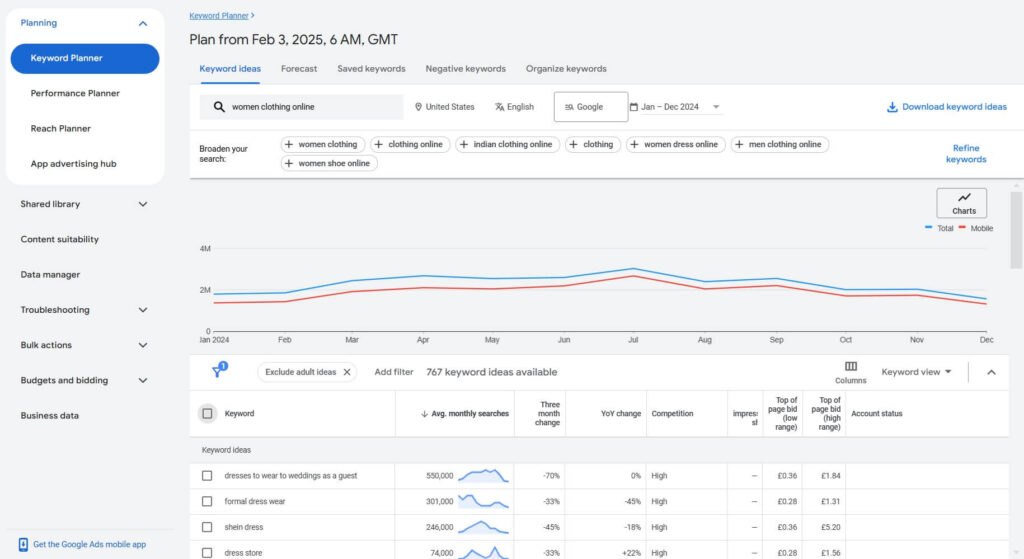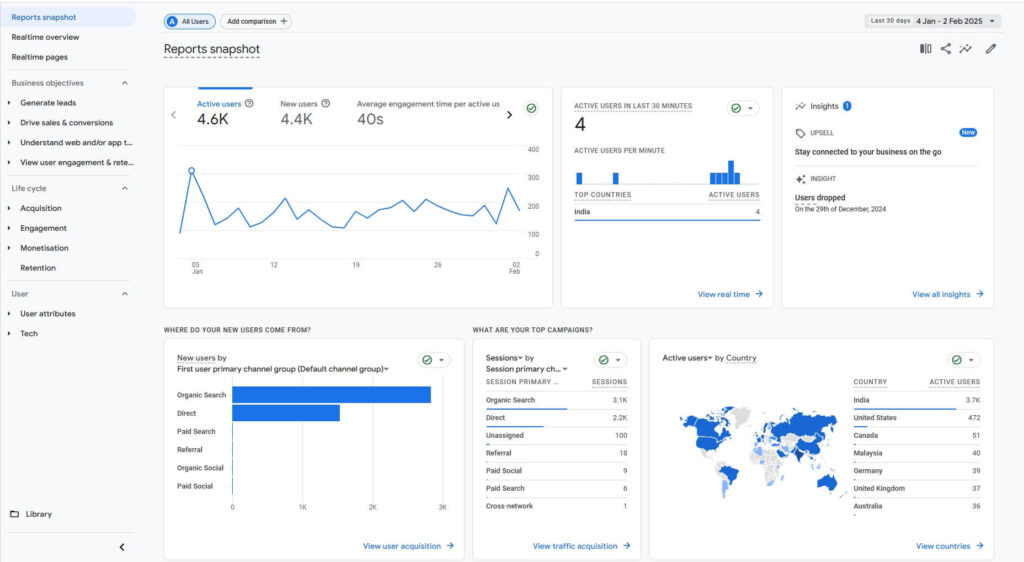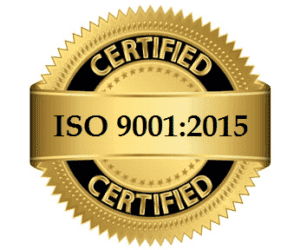Unlocking SEO for E-Commerce Success in 2025: How SEO Can Transform Your Online Store
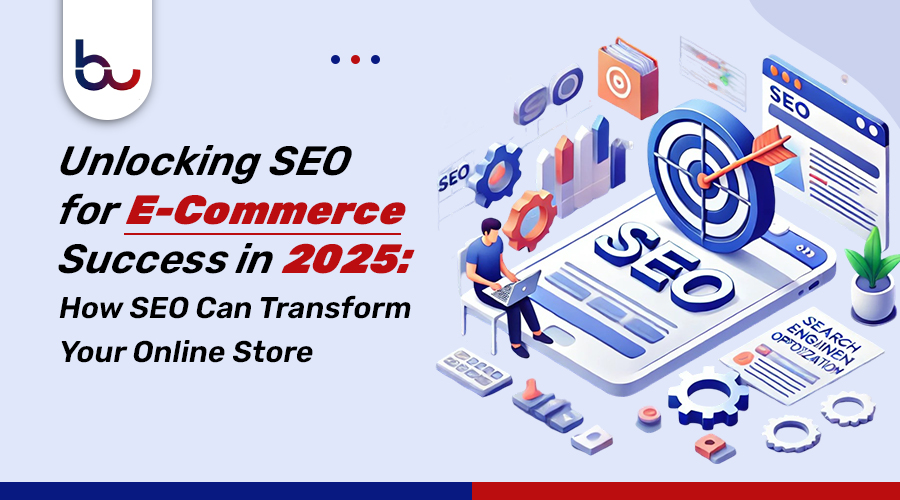
Introduction:
In the digital age, where e-commerce competition is fierce, Search Engine Optimization (SEO) serves as a critical tool for online businesses striving to stand out. Unlike traditional SEO, e-commerce SEO addresses specific challenges and opportunities presented by online stores, aiming to boost visibility and drive sales.
Understanding SEO for E-Commerce in 2025
E-commerce SEO is the tailored practice of optimizing your online store to rank higher in search engine results and attract more targeted traffic. It is crucial for converting casual browsers into loyal customers by ensuring your products are found quickly and easily.
Key Components of E-commerce SEO
- On-Page SEO: Optimizing product descriptions, meta tags, and URLs to ensure they are search engine friendly and keyword-rich.
- Off-Page SEO: Building a robust backlink profile and leveraging social media to enhance your store’s authority and reach.
- Technical SEO Ensuring that your e-commerce platform is structured correctly, loads quickly, and is accessible on all devices, particularly smartphones.
Common SEO Tactics for Increasing Online Visibility
The path to increased visibility involves strategic efforts including:
- Keyword Research: Identifying the right keywords is crucial for targeting the right audience. Tools like Google Keyword Planner can help discover terms your potential customers are searching for.
- Content Marketing: Regularly updated blogs, guides, and product reviews not only help in SEO but also in engaging customers
- User-Generated Content: Encouraging reviews and interactions can significantly boost your SEO efforts by generating fresh, relevant content.
Selecting the Right Keywords for E-Commerce SEO
Choosing the right keywords is fundamental to the success of your e-commerce SEO strategy. Here are the types of keywords you should consider to effectively target potential customers:
- Long-Tail Keywords: Longer and more specific keyword phrases tend to have less competition and higher conversion rates. Examples include "best price red women's running shoes" or "buy stainless steel French press online".
- Buyer Intent Keywords: These keywords indicate that a user is ready to purchase. Phrases like "buy," "discount," "deal," and "free shipping" are common examples. Keywords such as "buy organic baby food online" or "cheap wedding decorations free shipping" can drive sales.
- Seasonal Keywords: Depending on your products, including seasonal keywords can be beneficial, such as "Christmas party dresses" or "summer skincare products sale".
- Geographical Keywords: For businesses targeting specific locations or local SEO, adding geo-specific keywords helps, like "vintage boutique in downtown Chicago" or "New York Italian wine store".
Measuring SEO Success in E-Commerce
To gauge the effectiveness of your SEO strategy, utilize tools and metrics such as:
- SEO Analytics: Platforms like Google Analytics and SEMrush provide insights into traffic sources, keyword rankings, and user behavior.
- Performance Tracking: Regular monitoring and adjusting of your SEO strategies based on performance data is essential for continual improvement.
Why Choose Boodle Web Mart for Your E-Commerce SEO Needs in 2025?
In 2025, Boodle Web Mart continues to stand out as the leading provider of SEO services for e-commerce businesses. Our tailored strategies are specifically designed to enhance the online visibility and sales of your e-commerce store. At Boodle Web Mart, we understand the unique challenges and opportunities that come with e-commerce SEO. Our team of experts employs the latest techniques and tools to ensure your products not only rank higher on search engines but also attract and convert more qualified leads. Whether you’re looking to optimize a new online store or enhance an existing platform, Boodle Web Mart offers the best SEO solutions to meet your needs and exceed your expectations in 2025.
Conclusion:
SEO is an indispensable part of e-commerce success. With strategic implementation, it ensures that your store remains visible and attractive to potential customers, leading to sustained growth and profitability.
FAQs About E-commerce SEO
Results vary, but typically noticeable improvement can be seen within 3-6 months, depending on the competitiveness of your industry.
While SEO primarily increases visibility and traffic, this often leads to higher sales when combined with effective website design and user experience strategies.
Budgets can vary widely, but investing in a robust SEO strategy is crucial for long-term success. Consider your overall marketing budget and allocate a portion that reflects the importance of organic traffic to your business.
SEO is a long-term strategy with lasting benefits, while paid advertising offers quick, temporary boosts. A balanced approach using both can maximize your online presence.
Focus on creating unique content for each product and categorize products in a way that enhances user experience and search engine indexing.
Common mistakes include ignoring mobile optimization, poor site structure, and not using product-specific keywords.
Author Bio
Content written on behalf of BoodleMart
Do you want
more traffic?
At Boodle Web Mart we are determined to make a business grow. My only question is,
will it be yours?
Our Guides
Do you want
more traffic?
At Boodle Web Mart we are determined to make a business grow. My only question is,
will it be yours?

